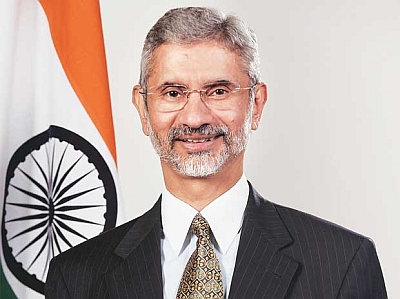United Nations: India’s initiative under its G20 Presidency to admit the African Union as a permanent member of the grouping is a “significant step” in reform that should inspire the “much older” United Nations to make the Security Council contemporary, External Affairs Minister S Jaishankar said Tuesday.
At the G20 Summit in New Delhi earlier this month, the grouping of emerging and developed economies adopted the New Delhi Leaders’ Declaration through consensus and included the African Union as a permanent member of the bloc.
Addressing the General Debate at the 78th high-level session of the UN General Assembly, Jaishankar said the African Union’s inclusion in the G20 was a “significant step.”
“It was also noteworthy that at India’s initiative, the African Union was admitted as a permanent member of the G20. By doing so, we gave voice to an entire continent which has long been its due,” Jaishankar said.
He said that “this significant step in reform should inspire the United Nations, a much older organisation, to also make the Security Council contemporary. Broad representation is a prerequisite for both effectiveness and credibility.”
In a significant milestone under India’s G20 presidency, the African Union became a new permanent member of the grouping of the largest economies of the world during the summit in Delhi. It was the first expansion of the influential bloc since its inception in 1999.
All member countries of the G20 accepted Prime Minister Narendra Modi’s proposal to bring the key bloc of the Global South to the high table of the world’s top economies.
In his inaugural remarks at the Summit, Modi had asked the President of the Union of Comoros and Chairperson of the African Union (AU) Azali Assoumani to join other leaders at the high table, making the 55-member bloc the second multi-nation grouping after the European Union to be a permanent member of the G20.
India, the world’s most populous country, has been at the forefront of years-long efforts to reform the Security Council, saying it rightly deserves a seat as a permanent member at the UN high table, which in its current form does not represent geo-political realities of the 21st century.
Jaishankar added that the “most populous nation and the fifth largest economy knows that its progress makes a real difference to the world.
“Especially so when so many nations identify with us for reasons of history, geography and culture. They follow our experiences closely and evaluate our solutions for their larger relevance.”
Jaishankar said that as the United Nations itself symbolises, finding common ground is imperative. “To listen to others and to respect their viewpoints, this is not weakness; it is the basics of cooperation. Only then can collective efforts on global issues be successful.”
He noted that even as Delhi encourages collective endeavours, India also seeks to promote cooperation with diverse partners. “From the era of non-alignment, we have now evolved to that of Vishwa Mitra (a friend to the world). This is reflected in our ability and willingness to engage with a broad range of nations. And, where necessary, harmonise interests.”
“It is visible in the rapid growth of the Quad, a mechanism today so relevant to the Indo-Pacific. It is equally apparent in the expansion of the BRICS grouping of independent-minded nations. Or in fact, the emergence of the I2U2 combination,” he said referring to the India, Israel, UAE and US grouping.
He said that recently, India hosted the creation of the India-Middle East-Europe Economic Corridor (IMEC). The forging of the Global Biofuels Alliance was another notable development.
“This willingness to work in an open-minded manner on specific domains is now a defining characteristic of the emerging multipolar order.”
The ambitious India-Middle East-Europe Economic Corridor (IMEC) was jointly announced by the leaders of the US, India, Saudi Arabia, the United Arab Emirates, France, Germany, Italy and the European Union on the sidelines of the G20 summit in New Delhi held September 9 and 10.
The new economic corridor is seen as an alternative to China’s controversial Belt and Road Initiative (BRI).
The IMEC is expected to stimulate economic development through enhanced connectivity and economic integration between Asia, the Arabian Gulf, and Europe. The IMEC will comprise two separate corridors, the east corridor connecting India to the Arabian Gulf and the northern corridor connecting the Arabian Gulf to Europe.
It will include a railway that, upon completion, will provide a reliable and cost-effective cross-border ship-to-rail transit network to supplement existing maritime and road transport routes – enabling goods and services to transit to, from, and between India, the UAE, Saudi Arabia, Jordan, Israel, and Europe, the Memorandum of Understanding on the Principles of an India – Middle East – Europe Economic Corridor said.
PTI
